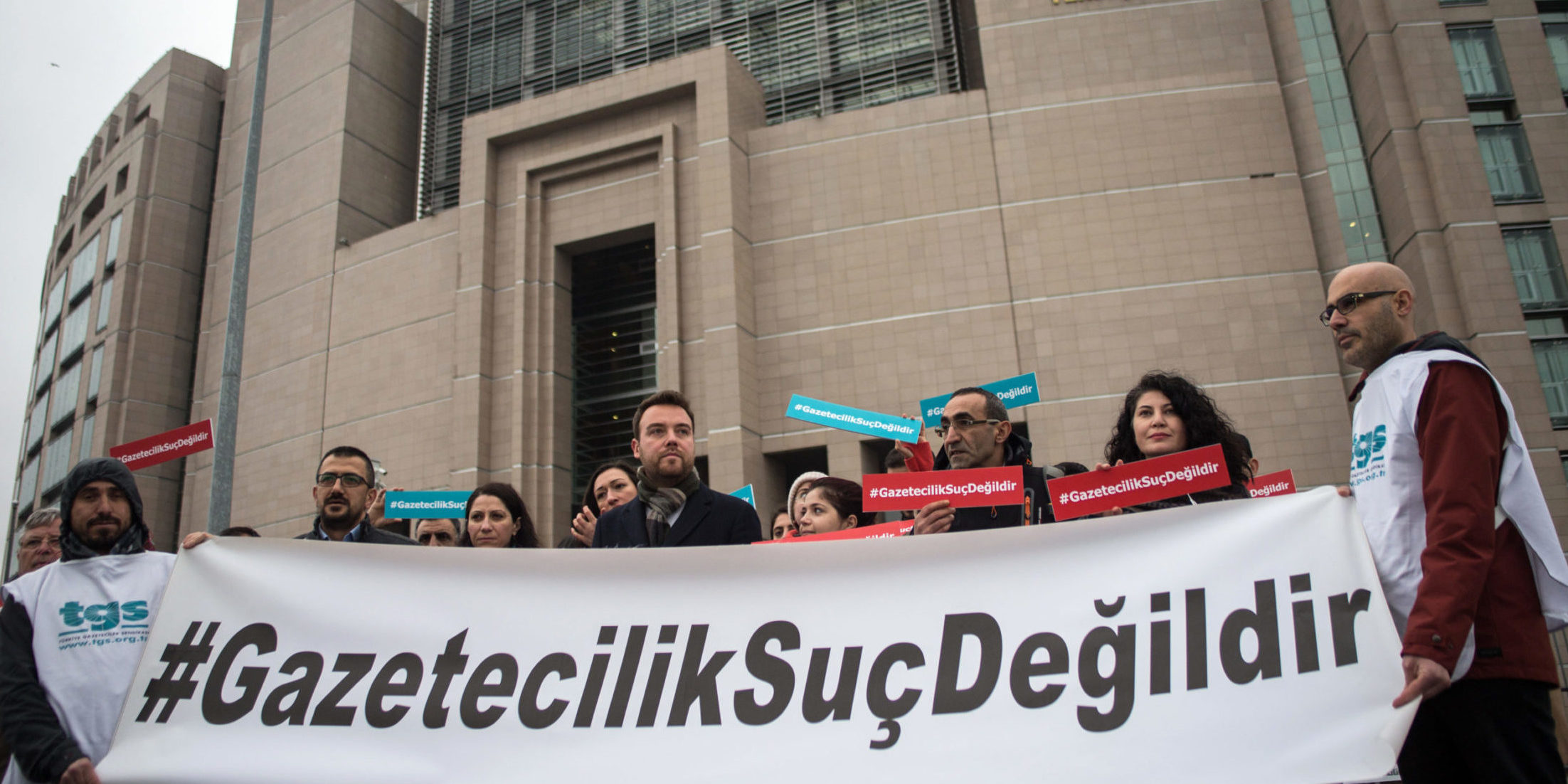Violations of journalists’ human rights, restrictions on reporting and oppression of media outlets in Turkey continue. Unfortunately, it’s difficult to speak of progress on May 3 World Press Freedom Day.
Prepared by Journalists’ Union of Turkey (TGS), this report surveys incidents that took place between April 1, 2020 and April 1, 2021. An analysis of reports received by TGS, this document is based on petitions for support, surveillance of ongoing lawsuits by our legal department, prison visitations we conducted, our public information access requests and media surveillance; the study also references state documents and academic work.
TGS aims to highlight the breaches of press freedom carried out by the Turkish judiciary, prosecution, and executive agencies of the government, along with third parties, as well as the anti-union efforts in the country that aim to weaken the fight for press freedom.
Highlights:
- Turkey’s Social Security Institution (SGK) reported 23,306 journalists in the country.
- Some 27.7-percent of journalism school alumni in Turkey suffer from unemployment, a rate almost double the national 13.2 percent, according to data from the Turkish Statistical Institute (TÜİK). The real unemployment rate among journalists, including those who work without social security, would land somewhere between 35 and 40 percent.
- Some 43 people are imprisoned in Turkey for their news reporting activities.
- Imprisoned journalists experience human rights violations disguised under “COVID-19 restrictions.” They are barred from communicating with their families, socializing, receiving letters and accessing healthcare services, and are subject to poor sanitary conditions.
- “Membership to an armed organization” and “conducting propaganda for a terrorist organization” are the charges most commonly directed at journalists.
In the last year…
- Some 57 journalists spent a collective 144 days in police detention. Six journalists were battered in police custody.
- Turkish prosecution launched investigations into some 101 journalists.
- A total of 274 journalists were tried in 128 different cases in Turkish courts.
- Turkish prosecution sentenced journalists to a total of 226 years, eight months and 25 days in prison.
- TGS spoke with 35 journalists in 12 different prisons to report human rights violations.
- Some 44 journalists were physically assaulted in Turkey, while some 23 were verbally threatened.
- Access bans were issued for 62 news outlets for 1,411 different pieces news content, while prosecution ruled for 13 news stories to be removed from the Internet.
- Turkey’s Radio and Television Supreme Council (RTÜK) issued a total of 7,488,851 Turkish Liras in monetary fines, and ruled for 41 broadcast arrests.
- Turkish prosecution cancelled 892 press cards in 2019, and some 322 in 2020. Meanwhile, 15,104 journalists hold a Presidential Press Card, the Communications Directorate reported to TGS.
- Turkey’s Press Advertisement Agency (BİK) blocked media outlets’ advertisement revenue for a total of 212 days: 90 days for Cumhuriyet daily, 63 days for Evrensel, 39 for BirGün and 20 for Sözcü and Korkusuz.
In addition, journalists have been battling to maintain their financial and union rights:
- Union rights and labor contracts protect the credibility of the profession of journalism and strengthens workers’ hands against censorship. Academic studies show that income and employment security promote editorial independence.
- TGS continues to be the biggest and strongest union in the industry as the union in charge in seven outlets.
- Meanwhile, media employers are still allergic to unions. TGS applied to unionize in five workplaces after obtaining majority of votes to do so, and was met with disputes from employers. Some 1,400 press workers are robbed of their union rights because of employers.
- The pandemic has also worsened work conditions for journalists, allowing unions to emerge as a solution: More journalists have unionized in the past year to defend their collective rights.
- Legislation about remote working have loopholes that work against journalists, and TGS’s “Guide to Remote Working” remains the only example of its kind that set out a blue print for a fair system of remote working.
- The right to exhaustion has been taken from journalists, without a solution emerging in the past year. TGS continues to seek legal solutions to regain journalists’ right to exhaustion.
- TGS opposes discrimination among journalists when it comes to vaccinations, and is working to allow all journalists to be inoculated as soon as possible.







